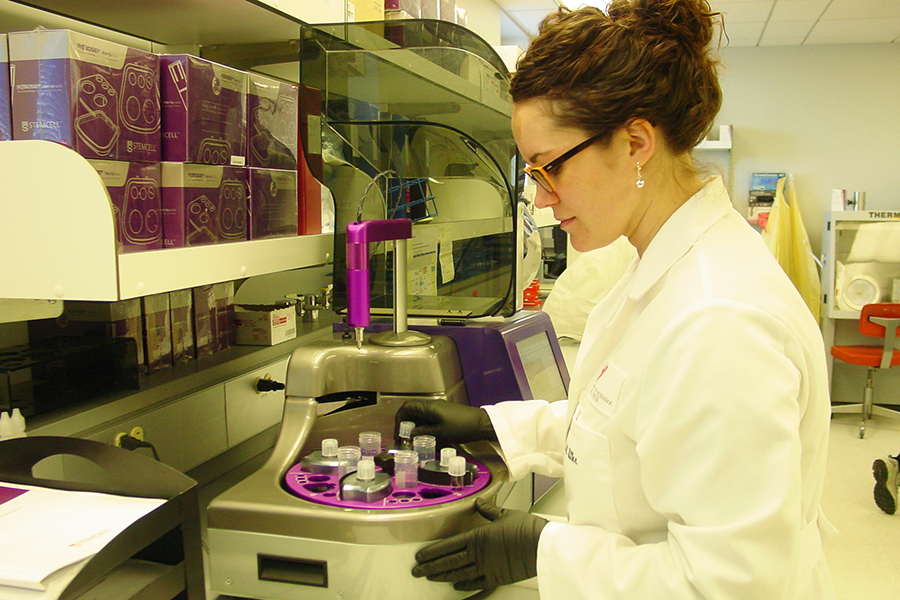Fellowships

Cytogenetics Fellowship
(Applications are not currently being accepted.)This two-year fellowship program in clinical cytogenetics involves the processing and analysis of the chromosomes of various types of samples with the purpose of detecting and interpreting chromosomal abnormalities. Fellows who train for certification in clinical cytogenetics will participate in all aspects of sample preparation, analysis and reporting, which will provide opportunities to acquire cases for their logbook. Fellows will be responsible for presentations in monthly genetics conferences and will attend the weekly clinical genetics case conferences within the division to enhance their teaching skills and encourage publication of highly interesting cases. They will also develop an individualized research project, primarily translational in scope, based on the ongoing research and development activities within the laboratory.
This training program is accredited by the American Board of Medical Genetics and Genomics examination in Clinical Cytogenetics.
Applicant requirements
- Applicant must have completed a terminal doctoral degree program by the time of matriculation into the Clinical Cytogenetics Fellowship Training Program.
- Applicants must hold an MD or PhD (or equivalent); the PhD degree must be in genetics or a related field within the biological sciences by the time of entering into the Cytogenetics Fellowship Training Program.
- PhD applicants should preferably have a research dissertation involving human cytogenetics related topic.
- MD applicants must have completed a medical residency program.
- Good communication skills in English.
- Graduates with MD or PhD degrees earned from schools outside of the United States or Canada require their degrees evaluated. A prior review by the ABMGG Credentials Committee is preferred.
Molecular Fellowship
(Applications are not currently being accepted.)This two-year fellowship program in clinical molecular genetics involves participation in handling and processing a variety of specimens, technical analysis, and results interpretation and reporting, providing opportunities for acquiring clinical cases for logbook preparation. This experience will cover a wide range of molecular genetic techniques including but not limited to, DNA/RNA extraction, PCR, Sanger sequencing, next generation sequencing, etc. Fellows are required to present and attend monthly genetics conferences and weekly clinical genetics case conferences. Development of a research project focusing on clinical diagnostics utilizing molecular genetic techniques will be encouraged.
This training program is accredited by the American Board of Medical Genetics and Genomics examination in Clinical Cytogenetics.
Applicant requirements
- Applicant must have completed a terminal doctoral degree program by the time of matriculation into the Clinical Molecular Genetics Fellowship Training Program.
- Applicants must hold an MD or PhD (or equivalent); the PhD degree must be in genetics or a related field within the biological sciences by the time of entering into the Molecular Genetics Fellowship Training Program.
- PhD applicants should preferably have a research dissertation involving human molecular genetics related topic.
- MD applicants must have completed a medical residency program.
- Good communication skills in English.
- Graduates with MD or PhD degrees earned from schools outside of the United States or Canada require their degrees evaluated. A prior review by the ABMGG Credentials Committee is preferred.